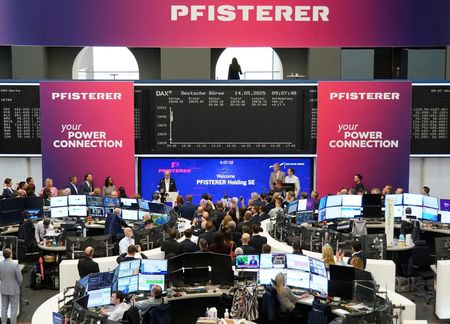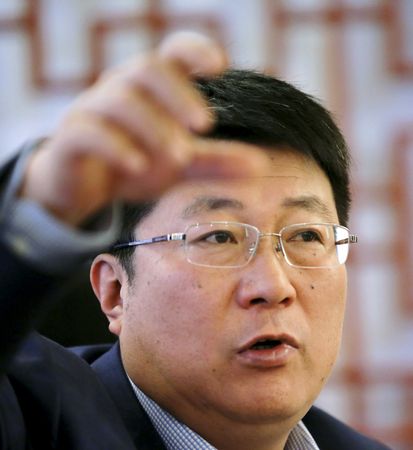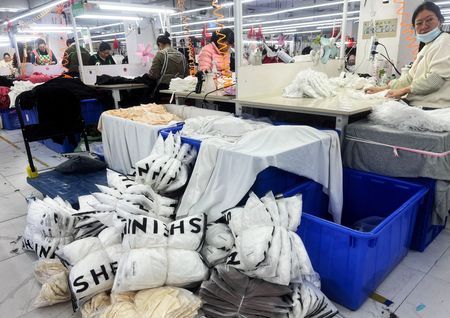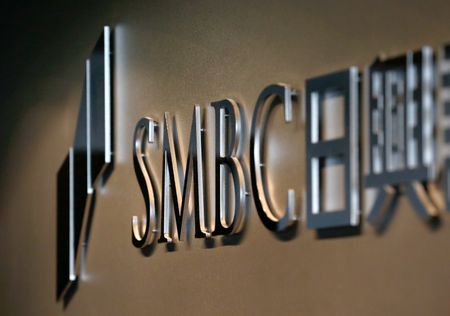By Samuel Indyk and Rocky Swift
LONDON/TOKYO (Reuters) – European stocks were little changed as markets took a breather after a strong rally on easing global trade tensions, while the dollar extended losses from the day before as relatively benign U.S. inflation data kept Federal Reserve rate cuts on the table.
Stocks climbed overnight in Asia while U.S. stock futures were flat after the S&P 500 moved into positive territory for the year on Tuesday.
As a truce in the tariff spat between China and the United States appeared to hit pause in the global trade war, investors have pushed global equities higher.
“It’s all about the change in risk appetite,” said Lars Skovgaard, senior investment strategist at Danske Bank.
“I have a hard time seeing that we’ll go back to this extreme political noise,” he added.
Europe’s STOXX 600 was last down less than 0.2%, taking a breather after its recent rally, having jumped over 17% since its trough on April 9, the day U.S. President Donald Trump announced he would be pausing most of the reciprocal tariffs on U.S. trading partners.
MSCI’s broadest index of Asia-Pacific shares outside Japan rose 1.4%, while Japan’s Nikkei 225 dipped 0.1%.
Hong Kong’s Hang Seng index jumped 2%, lifted by tech stocks after Chinese e-commerce retailer JD.com posted strong results. Investor focus this week will be on earnings from Tencent and Alibaba.
Equity futures pointed to a flat start on Wall Street.
Data on Tuesday showing softer-than-expected U.S. consumer inflation also provided some relief to investors worried about the inflationary impact of U.S. tariff policies, which had severely undercut expectations of near term Fed rate cuts.
Though traders expect inflation to pick up as tariffs lift import costs, the uncertainty over the outlook remains as Washington moves ahead to strike deals with its trading partners.
Trump in an interview on Tuesday said he could see himself dealing directly with Chinese President Xi Jinping on details of a trade pact. His touted “potential deals” with India, Japan and South Korea are still pending.
“We have lingering headwinds and uncertainty when it comes to trade negotiations with other economies and we still have a 90-day deadline hanging over U.S.-China trade relations,” said Frederic Neumann, chief Asia economist at HSBC.
The Fed has warned of rising economic uncertainty, signalling it is prepared to wait to assess the impact of U.S. tariffs before moving to cut interest rates again. Fed Chair Jerome Powell is scheduled to give remarks on Thursday.
The U.S. dollar, which has taken a beating recently on the back of the economic and policy uncertainty, dropped 0.7% against the yen to 146.40, and was down 0.4% against the euro. The dollar index slipped 0.4%, adding to a 0.8% slide in the previous session.
Global asset managers held their biggest underweight position in the dollar in 19 years in May, as Trump’s trade policy cut investor appetite for U.S. assets, Bank of America’s global fund manager survey (FMS) showed on Tuesday.
With the U.S. inflation figures out, the next major signal for U.S. economic health is retail sales data for April due on Thursday. The same day, talks are planned between Ukraine and Russia in Istanbul with hopes of a ceasefire three years into the deadliest conflict in Europe since World War Two.
In commodities, U.S. crude dipped 0.3% to $63.49 a barrel, but held near a two-week high.
Spot gold fell 0.3% to $3,237 per ounce as easing trade tensions weakened its safe-haven appeal.
(Reporting by Samuel Indyk and Rocky Swift; Editing by Shri Navaratnam; Editing by Michael Perry and Tomasz Janowski)












